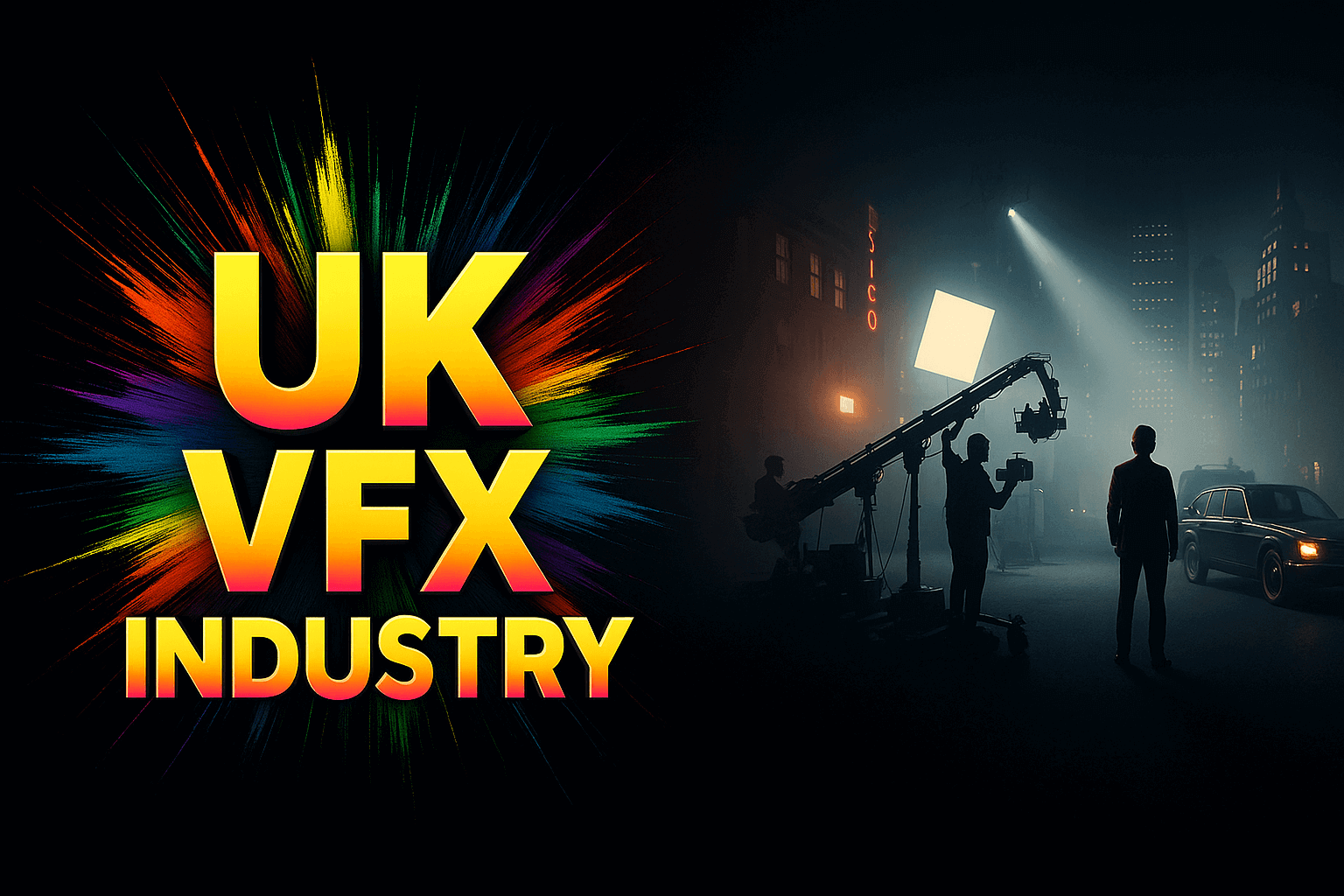Mastering the Digital Media Supply Chain

Introduction
In the high-stakes world of Hollywood, every dollar spent should land on screen. Yet, for decades, the media supply chain has been a complex web of manual work, redundant systems, and fragmented workflows, often acting as a silent tax on creativity.
The digital media supply chain market is now valued in the billions, as studios recognize that modernizing their operations is not just a technical upgrade but a strategic imperative.
A major studio, with its thousands of stakeholders and established systems, faces the unique challenge of making significant changes without disrupting the core business of content delivery.
As Greg Geier, former SVP of Digital Media Supply-Chain Strategy and Operations at Sony Pictures, points out, studios must make these changes while the “airplanes are in the air,” with zero tolerance for mistakes.
This article provides an executive-level guide to mastering the digital media supply chain, revealing how the most forward-thinking studios are leveraging new technologies to reduce friction, save time, and give creative teams more control. I will show you how a platform like Vitrina can act as a force multiplier, enabling you to find the right partners and technologies to transform your studio workflows.
Table of content
- The DNA of the Digital Media Supply Chain: From On-Prem to Cloud
- The New Metrics of Success: Measuring the Digital Media Supply Chain
- The New Gold: How Metadata and Archives Drive Monetization
- How Vitrina Empowers Digital Media Supply Chain Transformation
- Conclusion: The Future of Studio Workflows
- Frequently Asked Questions
Key Takeaways
| Core Challenge | Legacy systems and manual workflows create friction and cost, preventing studios from dedicating maximum resources to on-screen creativity. |
| Strategic Solution | Adopt a data-driven, outcome-focused approach to supply chain modernization, prioritizing investments in cloud-based workflows and metadata management. |
| Vitrina’s Role | Vitrina provides the verified intelligence on technology vendors, software providers, and service companies needed to build an agile and efficient digital media supply chain. |
The DNA of the Digital Media Supply Chain: From On-Prem to Cloud
For decades, the foundation of the media supply chain was on-premise infrastructure. These large, established systems performed their functions reliably, but they were not built for the agility and speed of the digital age.
The COVID-19 pandemic acted as a “point of inflection,” forcing a rapid adoption of remote workflows and accelerating the “camera to cloud” conversation that had been in the works for years. However, as Greg Geier pointed out, the promise of the cloud isn’t just access; it’s agility, but it must perform “better and smarter” than on-premise solutions to gain widespread adoption.
The film and entertainment industry’s adoption of cloud services is growing at a rapid rate, with a focus on post-production and distribution.
The key to successful cloud adoption is a focus on the “how” and the “why”. Convincing a stakeholder to change requires demonstrating that the new workflow will provide a tangible benefit, such as saving time, saving money, or providing more control.
This is a strategic communication challenge that requires a leader to focus on what doesn’t change first, building confidence in the process before introducing radical new ideas. This approach acknowledges the human factor in a technical transformation, ensuring that the technology serves the people, not the other way around.
The New Metrics of Success: Measuring the Digital Media Supply Chain
In a modern digital media supply chain, the old metrics of success are no longer enough. The focus should not be on “what to automate,” but “why I’m automating it”. As a leader, your role is to define the desirable outcomes you are trying to achieve, not just the technical process to get there.
The goal is to “free up the clicks” that people are making on a daily basis, reducing friction and giving creative teams more time, more budget, and more control over their vision.
Success is measured by these tangible outcomes: time saved, cost reduced, and a greater degree of control for every stakeholder in the process.
This approach requires a strategic partnership between technology and business, where both sides agree on a shared vision and a clear set of goals. By prioritizing these outcomes, a studio can move beyond a reactive, problem-solving mindset and into a proactive, strategic one, ensuring that every technological investment delivers a clear and measurable return on investment.
For a deeper look at this process, read our case study on transforming Hollywood’s digital supply chain.
The New Gold: How Metadata and Archives Drive Monetization
In the digital media supply chain, metadata is no longer a simple label—it’s your content’s “passport to discovery”. It is a powerful communication layer that links every stage of the creative process, from the first frame shot to the final archive. In a world of over a million streaming titles, having the right metadata can be the difference between a project being “top of the carousel” on a transactional platform or getting lost in the noise. This is the new, high-stakes reality of content discovery.
Furthermore, archives are no longer the final resting place for a film; they are the “beginning of what’s next”. With the rise of AI and FAST (Free Ad-Supported Television) channels, a studio’s back catalog is now a powerful asset for new revenue streams. Archives contain a massive amount of footage that can be used to train AI models ethically, providing a new monetization opportunity for studios.
The ability to leverage this deep, historical data for a new product, a new channel, or a new business model is a major strategic advantage for studios with a rich back catalog. This is a fundamental shift in thinking that transforms a library from a liability to a continuous source of value.
How Vitrina Empowers Digital Media Supply Chain Transformation
For a studio leader, navigating the complex web of vendors, partners, and technologies required to modernize a digital media supply chain is a monumental task. You can spend months or years trying to find and vet the right partners, only to find that the industry has already moved on.
Vitrina provides a single source of truth that simplifies this process. The platform’s comprehensive database of over 3 million decision-makers and 15,000+ technology and service vendors allows you to identify and connect with the right companies with unparalleled speed and precision.
By leveraging Vitrina’s rich metadata, you can search for partners based on specific capabilities and a proven track record, ensuring that the new technologies you adopt will work “better and smarter” than your existing systems.
Whether you are looking for a cloud solution provider, a metadata management expert, or a partner to help you digitize and monetize your archive, Vitrina empowers you to build a highly qualified business pipeline. This is the strategic intelligence you need to make confident decisions, reduce friction in your workflows, and ensure every dollar spent truly lands on screen.
Conclusion: The Future of Studio Workflows
The digital media supply chain is no longer just a backdrop to the creative process; it is a central driver of a studio’s success. The modernization of this supply chain is not about technology for technology’s sake; it is about enabling creativity, reducing friction, and unlocking new forms of monetization.
By embracing a data-driven, outcome-focused approach to transformation, studios can turn their operational complexities into a significant competitive advantage.
To navigate this complex transformation, you need a powerful partner. Vitrina provides the essential intelligence and connectivity to help you find the right vendors and service providers, ensuring that your next investment in technology is a strategic one.
Ready to make smarter, faster decisions in the new era of studio workflows? Sign-up Today
Frequently Asked Questions
A digital media supply chain is the end-to-end process of acquiring, managing, and distributing film and television content. It includes everything from camera-to-cloud workflows and metadata management to content delivery and archiving.
Cloud technology is transforming the media supply chain by offering greater agility, scalability, and flexibility compared to traditional on-premise systems. It is enabling remote workflows, reducing physical media costs, and streamlining content delivery.
Metadata is a communication layer that drives consumer activity and content discovery. It is a critical component for transactional platforms, ensuring that a piece of content is accurately described and appears in the right place, such as at the top of a streaming service’s carousel.
Archives are no longer just a storage solution; they are now a new asset for studios. The vast amount of footage in archives can be used to train AI engines, creating new business models and monetization opportunities through formats like FAST channels.

























